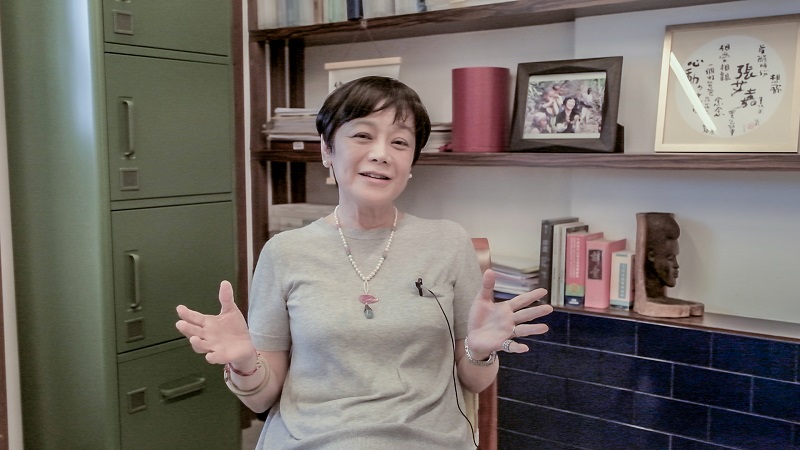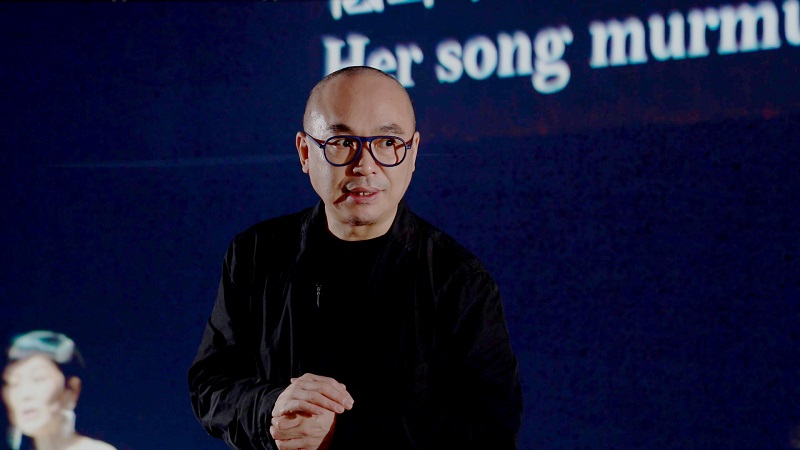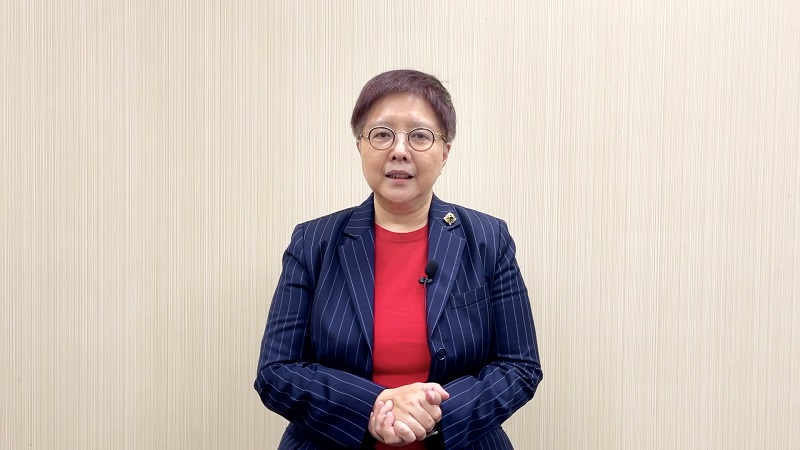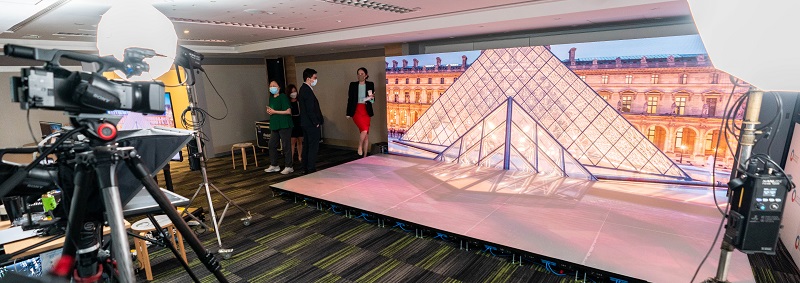Strategy for Future Cultural Creative Industries
Our Hong Kong Foundation’s New Report Urges the Government to
‘Be Virtually Ready’ with a Future Roadmap for Blossoming
the City’s Cultural Creative Industries
(24 May 2022, Hong Kong) – In order to stimulate Hong Kong’s cultural prowess and digital industries to new heights, Our Hong Kong Foundation (OHKF) has released a research report today entitled ‘Be Virtually Ready: Strategy for Future Cultural Creative Industries’. The Report sets out a strategic framework for the development of digital infrastructures for cultural data and IP trading. The Report also recommends creating a new and centralised bureau structure, tapping into Arts Tech potential for content creation and cultivating an ‘A-Team’ of Hong Kong’s next-gen creative workforce to advance the city’s global cultural appeal.
The digital transformation of cultural creative industries (CCI) is in full swing and has been accelerated by the pandemic. Taking full account of national directions for cultural industry development, the Report contains policy recommendations on (1) governance structure, (2) industry ‘software’, (3) industry ‘hardware’, and (4) talent development.
1. The new bureau set-up must be conducive to cross-collaboration between the arts and cultural sector and the creative industries
Having analysed the cultural ministries of South Korea, the UK, mainland China and Taiwan (See Appendix: Table 1), the Report proposes the ‘culture’ portion of the new Culture, Sports and Tourism Bureau must encompass at least four components: i) arts and culture; ii) creative industries; iii) media; and iv) copyright. These components are currently split across the Home Affairs Bureau and the Commerce and Economic Development Bureau, which has led to siloed efforts and a lack of effective synergy.
The new bureau set-up must be structurally effective in order to maximise the development of cultural and creative matters. The Report envisages potential roles for the Intellectual Property Department, Radio Television Hong Kong, Economic and Trade Offices, the Arts Tech Task Force, CreateHK and others in a new and centralised framework.
The Report urges the Government to devise a result-oriented and industry-driven blueprint for the future development of the CCI in Hong Kong, while delineating funding priorities and establishing concrete action items.
2. Industry ‘software’ should focus on fuelling content creation by sharpening or creating Arts Tech policies that help creativity blossom in all media channels
The Report highlights the importance of content creation as an indispensable policy goal for both traditional and modern art forms. The Government should hone its Arts Tech policies so that industry practitioners can better understand the objectives and possibilities of policies instead of simply submitting to them. Drawing inspiration from the national blueprint, Arts Tech should also support emerging art forms, genres and industries, leverage technology to create new content from traditional forms, and deepen R&D of cultural technologies.
The Report also recommends the Government devise a new funding mechanism that actively generates synergy and content-adaptations between the CCI. Creative industries can provide economic gains and cultural influence through content development. However, current CCI-related funding schemes are limited to one-off sector-specific projects and are separated from other funding schemes. Fundamentally, the current model undermines the potential for IP development across sectors and genres.
3. Industry ‘hardware’ should build a digital infrastructure for cultural data repositories to make insightful decisions, such as creating cross-genre trading platforms for cultural IP assets to drive economic gains
If cultural content is the ‘software,’ then digital infrastructures for big data and cultural IP represent the ‘hardware’ that facilitates content exports, maximises economic gains and increases the influence of the CCI. A well-established cultural data system collects and analyses data from a range of organisations in order to support decision-making in both the public and private sectors. Both mainland China and Taiwan are constructing CCI infrastructures that put big data at the core of a competitive digital economy.
The Report calls for a comprehensive data system that provides valuable information for the CCI with a well-defined framework for data collection and processing. Rigorous authentication and regulatory mechanisms should also inform policymaking and provide market insight.
The global copyright industry contributes an average of 5.54% to GDP, which means that cultural IP trading represents the basis of CCI activities. South Korea’s successful export-led content industry model represents the huge economic potential of dedicated online platforms for cultural content trading. To recognise the economic potential of copyrights in Hong Kong’s global profile, the Report recommends the Government build a digital platform with ‘database’ and ‘trading’ functions dedicated to promoting the city’s cultural IP. Accessible to local, regional, and international markets, this connected network will inspire diverse collaborations across sectors and carve out new opportunities for aspiring talents.
4. Encourage talent development with a clear roadmap
Since Arts Tech entered into cultural policy in 2020 to provide a strategic development direction for the CCI, no concrete manpower plan has been announced. With the advent of ‘metaverse’ technology in an increasingly digital landscape, the need for crafting immersive spaces grows by the day. The Report recommends the Government adopt the ‘industry-institution-research’ approach, which can stimulate a structured training plan for new talents, set up a foundation for training and research collaborations in the Greater Bay Area, and facilitate cultural and creative talent exchanges across the region. The Government must devise a long-term personnel roadmap and a human resources strategy with measurable milestones that expedites training and galvanises the sector.
Mr Bernard Chan, Vice-Chairman of OHKF, said: ‘Hong Kong has been given new cultural emphasis in the National Five-Year Plan. With the city’s new leader and Administration, we must articulate a new cultural vision that takes full account of the national call-to-action while staying grounded in local developments. Without a bold vision, a clear strategy and active leadership, Hong Kong’s status as a cultural hub is empty talk rather than a concrete goal. OHKF’s Report strikes now as a signal to rise to the occasion.’
Ms Helen So, Lead, Arts & Culture of OHKF, also commented: ‘The endgame of this report is to build an "A-Team" of future players for our CCI. The research process has shown that it is not talents that we lack. Rather, we lack the magnetism and synergy between different talents that can make the industry grow. My wish is that this report provides an attractive landscape that can identify, recruit and connect those who are ready to join this team. It is never what you see in front of you that makes an industry; there is always the extensive network supporting from behind.’
Full Report of Be Virtually Ready: Strategy for Future Cultural Creative Industries:https://bit.ly/3yTx1pQ
Full live report launch:https://youtu.be/GwBZgxOoo5Y?t=468
.jpg)
.jpg)
.jpg)
_0.jpg)





|
South Korea |
United Kingdom |
Mainland China |
Taiwan |
|
|
Governing body |
Ministry of Culture, Sports and Tourism (MCST) |
Department for Digital, Culture, Media & Sport (DCMS) |
Ministry of Culture and Tourism (MCT) |
Ministry of Culture (MOC) |
|
Arts & Culture |
✓ |
✓ |
✓ |
✓ |
|
Creative & Content Industries |
✓ |
✓ |
✓ |
✓ |
|
Media & Broadcasting |
✓ |
✓ |
|
|
|
Copyright |
✓ |
|
|



